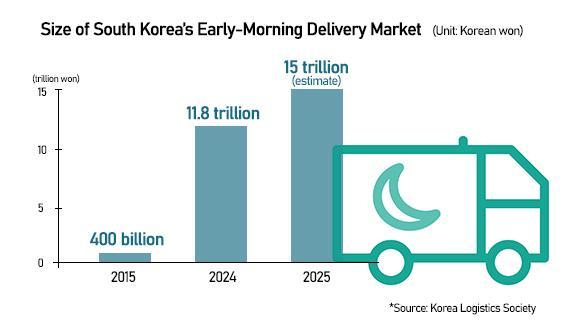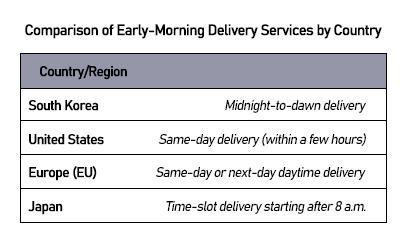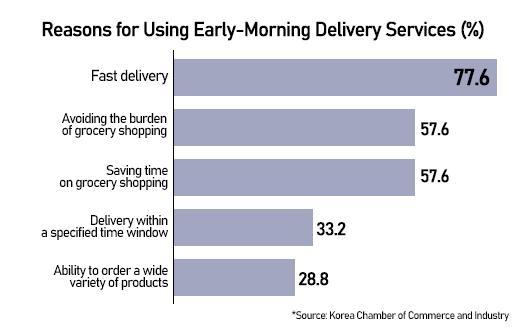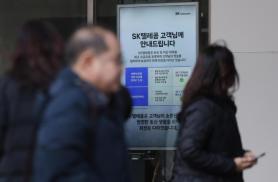
SEOUL, November 28 (AJP) - South Koreans expect grocery orders to arrive at their doorstep by morning — a standard that may astonish outsiders but has become routine thanks to Coupang's ultra-fast e-commerce strategy. Competitors large and small, including Kurly, SSG.com under Shinsegae, CJ Logistics, and others, now compete primarily on delivery speed.

But overnight and dawn deliveries come with a human cost.
The delivery workers' union under the Korean Confederation of Trade Unions recently proposed restricting deliveries between midnight and 5 a.m., suggesting that workers starting at 5 a.m. should handle early-morning orders. The union emphasized that the goal is to protect rest hours, not abolish the service. Even so, the discussion quickly escalated into calls for an outright ban.
Coupang, the dominant player, has become the center of the controversy. According to the Korea Occupational Safety and Health Agency, eight deaths occurred during early-morning deliveries between 2019 and 2023, with 151 workers injured. Critics say risks such as drowsy driving and chronic overwork cannot be dismissed as "voluntary choices."
Yet a ban is opposed not only by consumers but also by many delivery workers themselves.
The Coupang Partners Association, representing subcontracted drivers, said 93 percent of respondents in its survey opposed restrictions. Coupang's union for full-time drivers also argued the issue had become "political rather than being about improving labor rights."
Consumer sentiment leans strongly toward preserving the service. Surveys show delivery speed is the top reason Koreans choose Coupang, followed by easy returns and refunds. A Korea Chamber of Commerce and Industry poll found that 84 percent of residents in smaller cities and island regions want access to early-morning delivery.

The model is rare overseas, underscoring its uniquely Korean characteristics. In the United States, same-day delivery is offered by Amazon and Walmart, but midnight-to-dawn operations are avoided because of labor costs, noise regulations, and local "quiet hours." The European Union restricts transportation work hours, limiting shifts to under ten hours if any portion falls after midnight, while high logistics costs and strict urban noise rules make overnight delivery impractical. Japan also has no dawn-delivery service; most couriers begin time-slot deliveries after 8 a.m., and convenience-store pickup absorbs much of the early-morning demand.
Korea's geography and density help explain the difference. The Seoul metropolitan area has a high concentration of consumers and logistics hubs, enabling short delivery distances and light overnight traffic. From 1 a.m. to 5 a.m., drivers can handle far more orders than during daytime hours. Companies such as Coupang, Kurly, and Oasis have used delivery speed as a key competitive edge, making early-morning delivery a fixture of daily commerce.
Safety concerns, however, have intensified after a series of recent deaths involving night-shift workers. Three workers employed by Coupang or its subcontractors died this month while working overnight or early-morning shifts. Coupang said underlying health issues must also be considered, but labor groups counter that strenuous work can aggravate existing conditions and should be treated as an occupational illness.
The debate is growing increasingly heated.

A National Assembly petition opposing a ban has surpassed 25,000 signatures. Supporters argue that policymakers must consider the realities of dual-income households, while businesses warn that restricting the service could disrupt the broader ecosystem — including fresh-food logistics, packaging, electric-vehicle delivery, and smart-logistics operations.
Experts say the goal should not be eliminating early-morning delivery, but ensuring the system remains sustainable. "Strengthening accident-response systems and guaranteeing rest hours are key," said Seo Yong-gu, a professor at Sookmyung Women's University. "What is needed is policy reform that protects workers while maintaining industrial growth."
Copyright ⓒ Aju Press All rights reserved.




